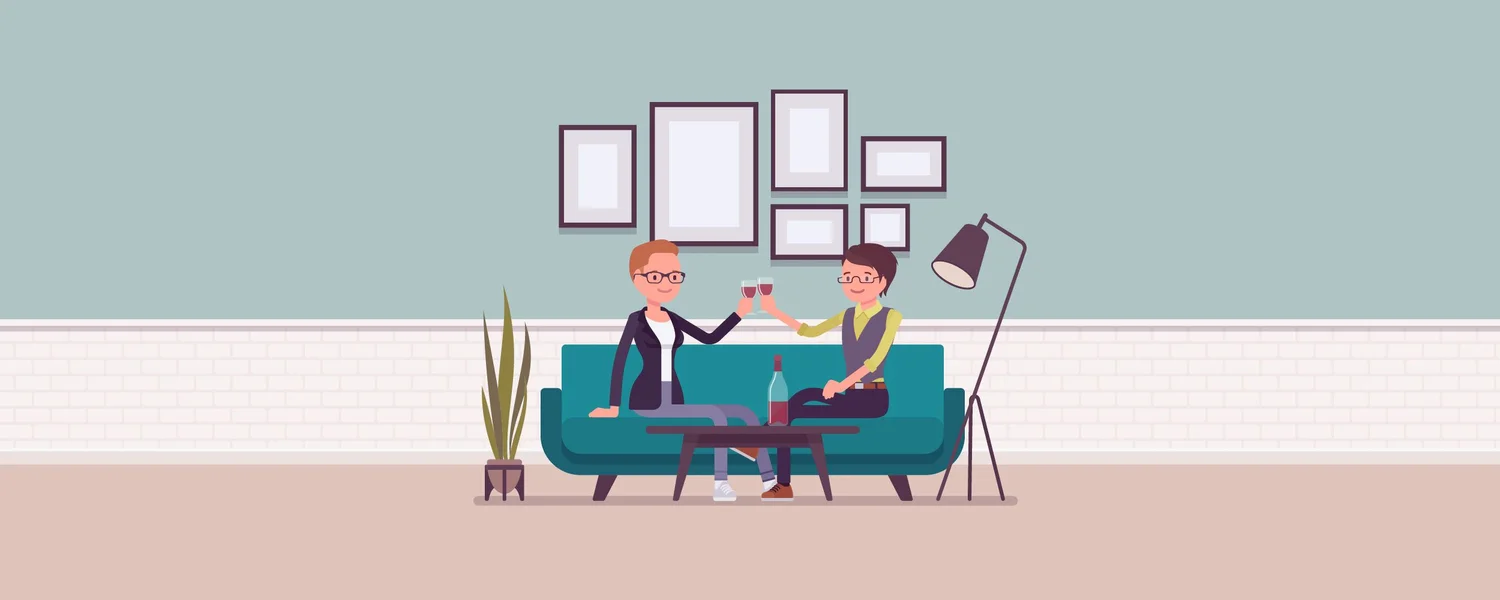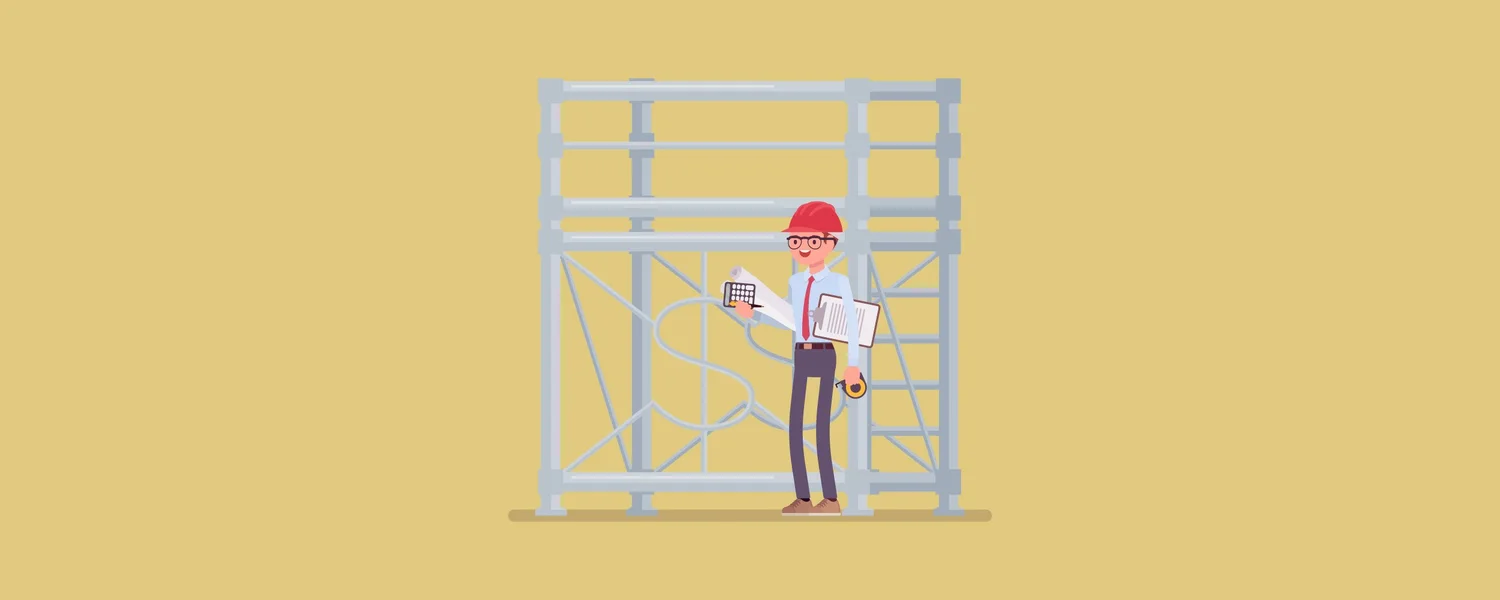Discover The Happy Saver Podcast - Personal Finance in New Zealand
The Happy Saver Podcast - Personal Finance in New Zealand

The Happy Saver Podcast - Personal Finance in New Zealand
Author: Ruth - Personal Finance Blogger
Subscribed: 683Played: 19,823Subscribe
Share
Description
Your friends might not want to talk about money, but I do! Hi, I’m Ruth and I’m a blogger on Personal Finance and in this podcast I tell the stories of Kiwis and their experiences with the money in their lives. How do they use it or how does it use them? Where do they save and invest it and does it work? What are their financial triumphs and financial train wrecks? How can you extract the most out of life and spend as little as possible while doing it? Join me as I ask the questions everyone else is too polite to ask but is dying to know about New Zealanders and their money. Happy Saving! Ruth
122 Episodes
Reverse
Jennifer first emailed me in early 2023 after listening to all my podcasts. She knew I was a big advocate for parents teaching kids to invest and had a few questions, including one detail that really caught my attention. Her then 17 and 19-year-old children didn’t know they had a small amount of money coming their way at 25. She wanted to keep it secret, plus they had zero interest in investing. That sparked an ongoing email exchange, and nearly three years later, we’re here, with Jennifer finally agreeing to share a much deeper financial story than she first intended. She genuinely thought she was the only one in her position, struggling to make ends meet, trying to get out of debt, and managing a solo financial journey within a happy marriage. This episode is a frank look at how so many couples who think about money very differently are actually dealing with it today, and why her experience is far more normal than she realised. I know there will be people listening who see themselves in her story and come away with reassurance, clarity, and a sense of what’s possible.
Today I’m sharing the story of Steve and Sarah, a UK couple who, many years ago, packed up their lives, moved to Aotearoa, and built a really solid financial life together. From the get-go, they’ve been a great team with money: well-educated, curious, hard-working, and brave enough to take big leaps when the chance came along. Over the years, they’ve invested in property, shares, and themselves, learning plenty along the way. Like many of us, they’ve had a few financial detours, several property disasters, but their long-term habit of saving and investing has quietly set them up for a strong and flexible future as they approach retirement in their late 50s. This conversation is full of insights from Steve’s engineer’s brain, the steady teamwork he and Sarah share, and the real-life curveballs that have made them rethink what matters most. It’s an honest, practical story about the power of keeping things simple, staying curious, and building the kind of financial life that lets you enjoy today, while still planning for tomorrow. Whenever I pick up the phone for a kōrero with someone like Steve, I know I’m in for a detailed chat, and he didn’t disappoint, and I’m sure that those listening will be able to pull out little nuggets of wisdom from the information he shared.
Maria and Michelle were late financial bloomers who only really got started in their 50s. Now 71 and 69, they’ve paid off their mortgage and student loan, invested in the sharemarket, built up $1,000,000 in savings and investments, and receive NZ Super and a US pension. Through hard work, investing as much of their income as they possibly could, and carefully tracking and measuring their progress, they went from feeling anxious about retirement to completely calm about it. For Maria, money had always meant security, yet for a variety of reasons, she kept making poor financial decisions throughout much of her adult life. She knew what to do, save, invest, be sensible, but never quite managed to pull it all together. Moving from the US to New Zealand at age 50, however, felt like pressing a giant reset button. She’d always invested in her education, and she brought that knowledge with her. Soon after, she met her partner Michelle, who was equally qualified but also late to the financial party. Together, they realised they were well set up to succeed if they put in the effort. And so, they did. They’re a textbook example of starting right where you are, no matter your age. And I have to say, this was one of the most enjoyable conversations I’ve had in a long time.
This week, I’m sharing the story of Rachel, a 90s kid from Timaru. Rachel is the youngest of four, with three brothers, and a ten year gap between her and her oldest brother, and they all grew up with a stay at home mum and a Dad who always took any and every job he could to provide for their family. Although Rachel just assumed that hers might be a standard life plan of go to school, complete some tertiary study at some point, get a full-time job and work your way up the career ladder, she has ended up veering off on a path entirely of her own making. Aged 32, she now works where and when she wants to and is not afraid to work full-time or not at all. She’s created a financial cushion for herself, which is smaller than you might expect, but it's plenty enough for her. This is coupled with a large and supportive family and community, meaning she gets to go out and be herself, knowing she’s never alone. I reckon that Rachel’s story is one of resilience, adaptability, and crafting a life that balances work, faith, community, and financial independence on her own terms, and she is genuinely happy and content with where she has been and where she is yet to go.
In today’s episode, I spoke with Marian, who in turn spoke on behalf of herself and her husband, Jon. Originally from the Netherlands and now based in New Zealand, they’re in the middle of a big transition, preparing to sell their home in the greater Wellington region and move down to Canterbury as they edge closer to semi-retirement. It’s a big transition in many ways, but moving location is something this couple have regularly done throughout their lives, and Marian in particular enjoys the whole process of heading off to live in a new house and discover a new area. Today’s episode gave me a fascinating insight into growing up and working in the Netherlands, and how and why a couple would want to give all of that up to move to New Zealand. Born savers, these two have always had their eye on their wallet, and that simple habit, of living on less than you make, has certainly been a big part of their success today. But forays into using a financial advisor and investing in rental property didn’t serve them well when they tried to take that next step into investing. It was really only when they stepped back and decided to educate themselves and manage their own index fund investments that they got off the side roads and onto the freeway to financial independence. Now, with a move to Te Waipounamu ahead and the ability to step back from full-time work, Marian and Jon are at an exciting stage of life, still aiming to reach their financial goals, but with the freedom to shape what the future looks like.
Today’s guest, Gail, has been on quite the financial trip and she’s still very much on it. Back in 2019, at age 41, she experienced a wake-up call. She found herself with plenty on her plate: a failing business, an income of just $25,000, no savings, no emergency fund, drawing down on her mortgage to pay the mortgage, mounting IRD debt, $4,000 on the credit card, and using buy now, pay later just to cover the basics in life. After listing down her not insignificant problems, she asked herself how on earth she could get out of this mess. But, at that stage, no ideas were forthcoming other than finding a new husband, getting back together with the old one, or winning the lottery. Ultimately, she realised that she was the solution to her own problems. As you’ve heard from many guests on this podcast, a bit of knowledge and time can make all the difference. Today, aged 47, Gail’s got a plan. And that is to put the past behind her, build her future and retire by the age of 53. Her financial situation is so common, and by sharing her story, she’s not only showing how far she’s come, but also helping others believe they can turn things around too. In fact, Gail credits this very podcast as one of the sparks that got her started on this journey. She told me, “I never would have thought it possible if I hadn’t heard of other people doing it, and just hearing the variety of ways that people have made their situation better was a huge help to me.”
This week's podcast is all about 51-year-old Julian. We picked up the phone for a good old kōrero in late June 2025. Let’s just say, if talking were an Olympic sport, Julian and I would tie for first place. Late in 2023, useful financial resources started appearing on his radar, not that he tuned into them fully, but they set him on a journey. From there, he began his financial U-turn, which led him to The Happy Saver and all the inspiring stories I’ve shared. He discovered The Barefoot Investor, Rebel Finance School, Mr. Money Mustache, and the world of financial security and independence in general. In this way, he feels that as a late starter, he has found a community that values discussing money. And although he still has a way to go, and he’s easily distracted, he’s feeling increasingly confident with the financial scaffolding he has begun to put in place. He’s got 14 years to go before his 65th birthday and, if he can keep himself on track (something that doesn’t come easily to him), he’s setting himself up for success.
In today’s episode, you’ll hear from an awesome couple, Kate and Taka, aged 33 and 34, who are doing life and money a little differently, and doing it well. From the moment we started talking, I could tell they’d put a lot of thought into not just their finances, but how they want to live. Over the past few years, they’ve made some bold, intentional choices: moving south, stepping back from full-time work to each working just two days a week, and prioritising time with their three young kids. It’s not the typical path, but it’s one they’ve carved out thoughtfully and intentionally. And mathematically. We chat about how they’ve managed to build a life that gives them both freedom and stability by sticking with frugal habits from their student days, questioning whether more work really means more money, and making financial decisions as a true team. Taka’s a fan of the numbers, Kate brings the big-picture perspective, and together they’ve found a rhythm that works. This episode is packed with practical tips, honest insights, and a refreshing example of what it looks like to live by design, not by default.
This is a revisit episode, I enjoy doing these because I like you wonder, “Whatever happened to…?” I last spoke with Hamish in 2021, Episode 50, An Investor With Military Precision, back when he was a 27-year-old solo homeowner and disciplined saver working in the New Zealand military. Fast-forward four years, and life has changed: he’s now 31, married to Sophie, and the two of them are navigating homeownership, investing, and future planning as a team. It’s clear from talking to Hamish that theirs is a partnership built on communication, respect, and shared goals. With two minds on the case, they’re refining their investment strategy, slowly shifting from property-heavy assets toward a simpler, more diversified approach, while still living a good life with their growing whānau.
This episode revisits my August 2022 conversation with Neil in Episode 69, A Financially Complicated Breakup. Now 52, Neil has lived in New Zealand for 20 years, working in IT since moving from the UK in 2005. He retained his UK property as a rental and began learning about personal finance around 2006. When KiwiSaver started in 2007, he joined up, and by our first chat, his KiwiSaver had grown to $200,000. After a previous long-term relationship ended with a fair asset split, Neil began to invest more and more in a range of ETF funds. A new relationship followed, and he became a father, but without a relationship property agreement in place, the eventual breakup led to a bitter legal dispute over money. Hearing his story offered a valuable male perspective on something I more often hear from women: lengthy, painful separations marked by financial and emotional strain. Often, there’s already a financial imbalance, which becomes even more difficult when children are involved and time off work affects a woman’s earning power. While I’m mindful this is only Neil’s side of the story, I’m pleased to share that this challenging chapter ultimately ended well, and I hope the details provide insight and hope to others navigating similar situations.
In this episode, I chat with Tracey, a long-time reader and listener of The Happy Saver who first came on my radar through her detailed Debt Free Questionnaire in 2022. Tracey and her husband have reached what's known as Coast FI—meaning they already have enough money invested that, even if they never added another dollar to their investments, by the time they reach 65, it will have grown to their required amount. This gives them the flexibility to reduce their working hours in their self-employed HR roles if they choose. We dig into how Tracey got herself to this point and where she plans to take it from here. It’s an interesting episode, with quite a bit of complexity, but I think it’s a fascinating one, as this couple have independently and collectively created a lot of options for themselves. Tracey said she has had a “lumpy” journey, and that “there is no need to go anywhere in a straight line.” The key for her is that she is making progress. She is a firm believer in setting up an investment, making regular contributions to it, but not being afraid to make changes and do things differently as you continue to research and learn new information.
After my long kōrero with Sammy to prepare this episode, my head was spinning from all the twists and turns of her story. After 57 years of personal and financial trauma, last year, in 2024, Sammy had her “aha” moment when she said “Screw it, I’m sick of this,” and started to let a little light shine on her money. Once she had opened the door a crack, she basically just ripped the whole roof off her financial life, and has had a complete, and hopefully permanent, financial transformation. She’s not done yet; she has some mahi in front of her, but she is well on her way. I’ll often meet people who blow up their financial lives for the better, and the progress they make is astounding. Sammy is one of these people. Twice divorced, and with three children, one of whom has special needs, she has spent many years often living below the poverty line and buying bread and milk on a credit card that she could not pay off, and sometimes she has made decisions that kept her on the poverty line. Over the decades, she trained as a teacher and stabilised her situation, but still made questionable financial choices, until finally, aged 58 today, she is charging ahead.
In November 2024, I attended Black FI-Day, New Zealand’s first financial independence hui. Nearly 40 people gathered for this three-day event to share their financial journeys. One of them was Amelie, the person in the spotlight today. Just 19 at the time, she showed up on her own and was understandably nervous. But before long, every participant was in awe of this young wahine from Taranaki, who had decided that if spending a weekend with a bunch of strangers meant learning about money and building financial confidence, it was worth the risk. She got fully involved in the weekend, even sharing her situation in a case study that she presented to the group. Now 20, she joined me for a kōrero, giving me the chance to dive deeper into her money journey. I hope today’s episode resonates with teens, 20-somethings, and to the adults who happen to have a young person in their midst.
Today, I’m sharing the financial ins and outs of Alan and Katie Donegan, the world-travelling English couple behind Rebel Finance School. Over the years, we have become friends, and learning about their journey to financial independence and then watching them move into full retirement has been incredibly motivating for both Jonny and me. They finally made it to New Zealand, and back in early December 2024, we sat down at my kitchen table, where they generously answered all of my nosy questions. I’m looking forward to sharing their personal finance journey with you because once they discovered the concept of financial independence, these two were on FIRE!
I first met today's guest, Ajith, when he emailed me with a couple of questions back in 2024. He’d come across The Happy Saver while on the hunt for some motivation to keep pushing towards the goal that he and his wife Arya have to become debt-free by his 39th birthday, which is in 2028. When they began to lose patience and motivation, hearing both my journey with money and that of others helped to keep them on track. This couple are in their mid-thirties, with an eight-year-old daughter and live on the East Coast of the North Island. When I spoke with them at length in October of 2024 and again in February 2025, they were debt-free except for the $223,000 mortgage they have on the home they had built in 2021. They have also been investing in their KiwiSaver plus in investments outside of KiwiSaver. I wanted to share their journey today because his email to me and our subsequent kōrero threw up the dilemma of paying down debt fast vs investing. I think you will enjoy it.
In mid-October 2024, I brewed a coffee, sat down, and gave Poto a call. She’s been a long-time listener of the podcast, drawing on insights from past guests to help guide her decisions over the years. Back in 2021, she and I started exchanging emails, and we've stayed in touch ever since. When we recently crossed paths in person, I learned more about her journey and couldn’t help asking if she’d join me for a kōrero. True to her kind and generous nature, she agreed. Poto is 57 years old and calls the Central Plateau, in the centre of the North Island, her home and playground. She loves the area and loves the great outdoors. She had been heading down a few avenues that didn’t sit quite right with her and backing out to take another path, but steadily, she tracked towards the FI (Financial Independence) community and a more simple path to wealth. With dedication and mahi, she’s reached a point of financial independence—and today, she’s here to share her story.
This week, I’m making a bit of an exception and chatting with someone who was a bit reluctant to talk about money. Which is ironic, given this is a podcast that talks about money. Rob, a 33-year-old plumber from Western Australia, took a little persuading to come on my podcast, but I persisted because I knew enough about him to know that his personal finance story is one that many of us will be able to relate to and draw ideas from. Rob is essentially financially independent, working just a quarter of the year, and he recently hosted Tribe FI, a personal finance retreat. I met Rob after he invited me to speak at the event, and after some detective work to confirm he wasn’t a scammer (spoiler: he’s not), Jonny and I attended—and loved it. In this episode, I delve into Rob’s journey to financial independence and what inspired him to create a space for like-minded people to connect.
In today's episode, I will be sharing the financial journey of Jack, a Kiwi from the lower North Island. Jack found The Happy Saver when he was searching for podcasts on money. As an investor in rental property, he was looking to learn about shares. As you’ll find out shortly, he leads an interesting life. He has a personality that I can relate to; he said he could talk to a lamp post, and as a result, he meets heaps of people, so he had no qualms about stopping in to visit Jonny and I when he was down in Central Otago riding the famous Rail Trail and doing other interesting things, earlier in the year. We’ve stayed in touch since, and I’m pleased I have because Jack gets about. When we chatted for this podcast, he was sitting in San Fransisco, having just had many months overseas and was getting ready to board a three-week cruise to bring him back home to Aotearoa.
Today’s episode is an update on North Island couple Chris and Rosemary. Their first episode came out in March 2021 — it was episode number 49. Since then, we’ve kept in touch, and today’s episode is an update on where this couple are now, in terms of both money and life. It’s safe to say they have absolutely transformed their situation, and I hope this episode lights a fire under those listening and prompts you to reach for a few stretch goals, whatever they might be. Over the last four years, Chris has sent me some pretty epic emails as he went on a deep dive into learning about personal finance. I watched from the sidelines as he got Rosemary on the same page. They’ve since both utterly transformed their financial lives, embarking on a new journey toward financial independence. Today’s update won’t disappoint — these two are not mucking around.
Today's episode began with an email from a Kiwi couple in their mid-40s, who asked to be called Tokyo and Rio, inspired by the show Money Heist. Tokyo reached out just before Christmas 2023, sharing how a sinking fund she started nearly a year ago was making her happy amidst a tough financial year. It had been a challenging one—an overseas trip, big bills for their rental property, tax and ACC bills, and a lower-than-expected income. They were considering a $15,000 mortgage top-up to cover it all. But Tokyo wanted to know if there was a better way. Of course, there is another option. I hit reply to her email and proceeded to throw the cat amongst the pigeons.

























NZ IRD are punitive. Those politicians who created the legislation received a free education. Education SHOULD be free !
my favourite financial podcast! thank you, Ruth
😳😳
really interesting episode! Lucas SELL THAT HOUSE!
Thanks for the great pod cast Ruth! A recent discovery for me and I'm so glad I found you! Slowly but surely working through the episodes.
Ruth, great work and thank you for the production of podcasts with a Kiwi bent to money, finance and FIRE. I highly recommend this podcast for New Zealanders and other listeners who are looking for real information on personal finance. It is a subject which needs more truth and realities discussed. It is horrible to think the majority of peope have not been informed on basic concepts which will improve their future lifestyle and future selves. Keep up the good work. Listen to Happy Saver to unlock the door to financial freedom!